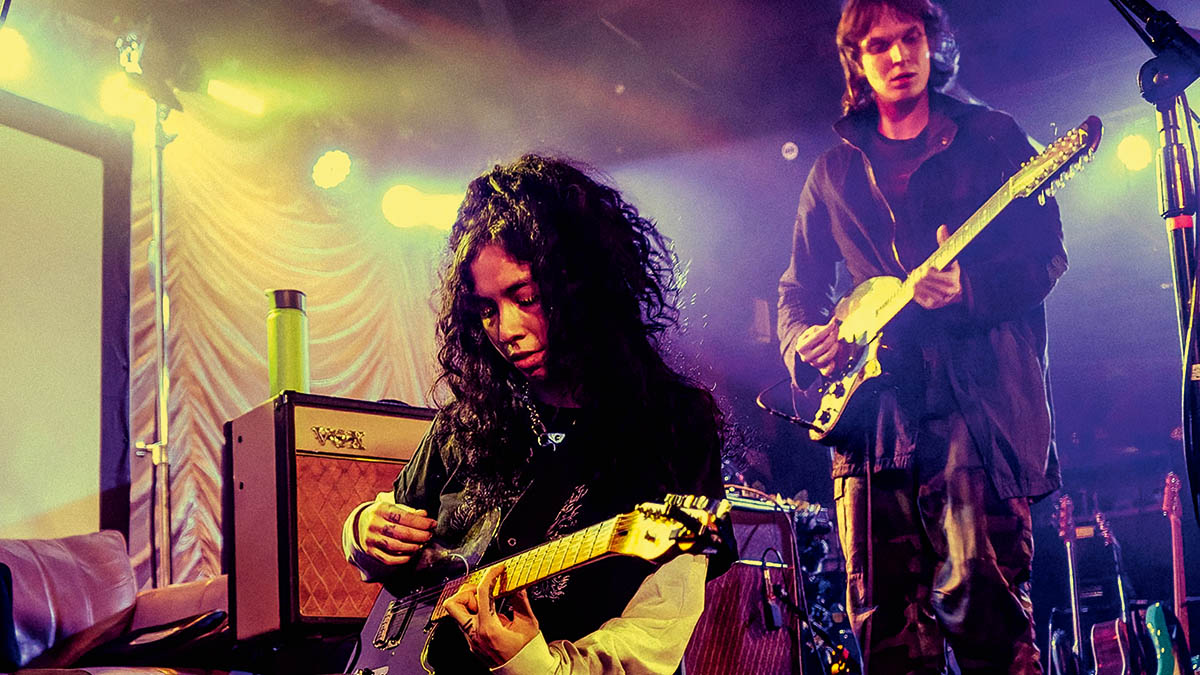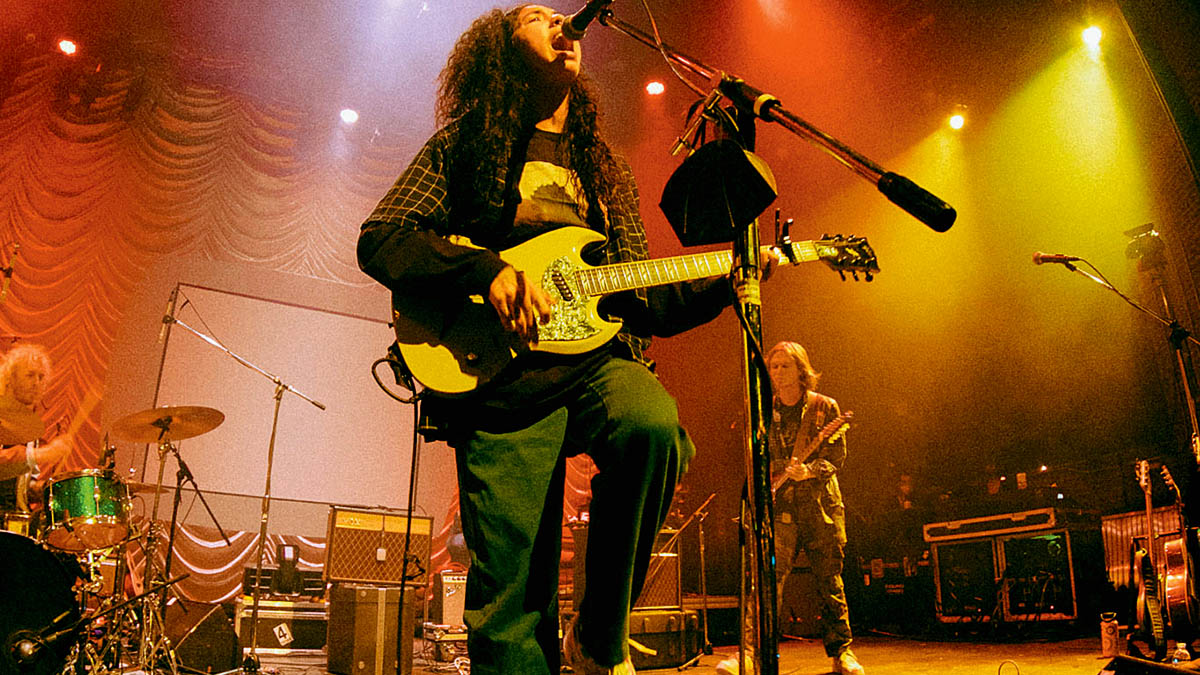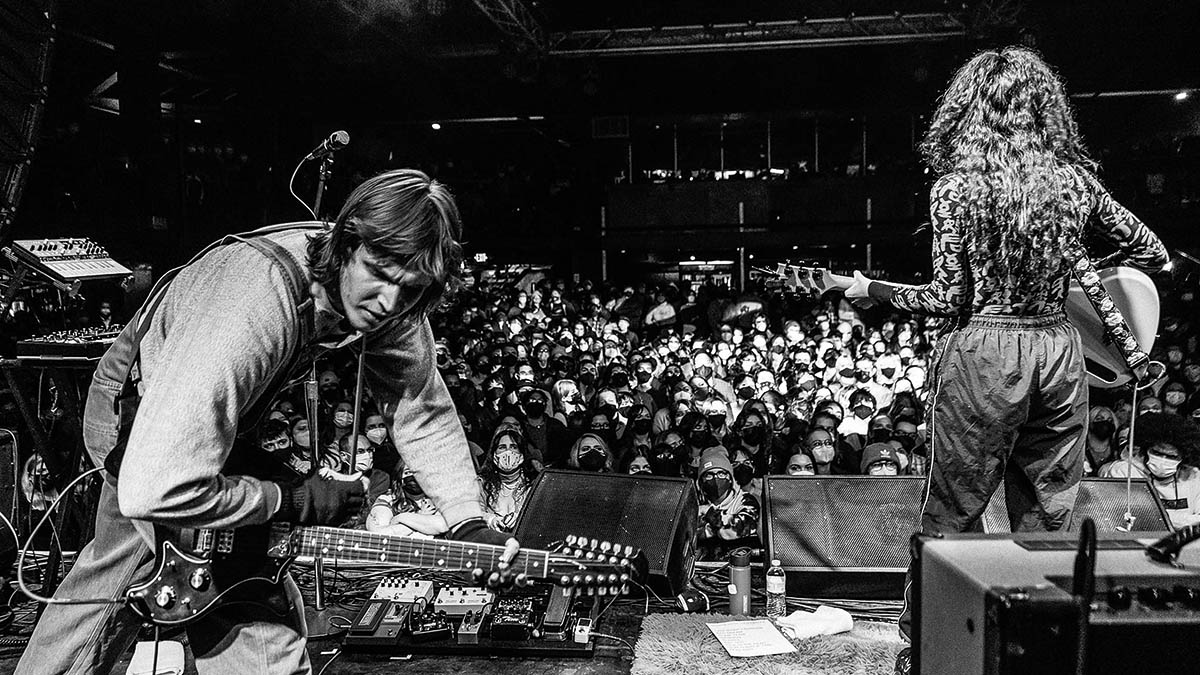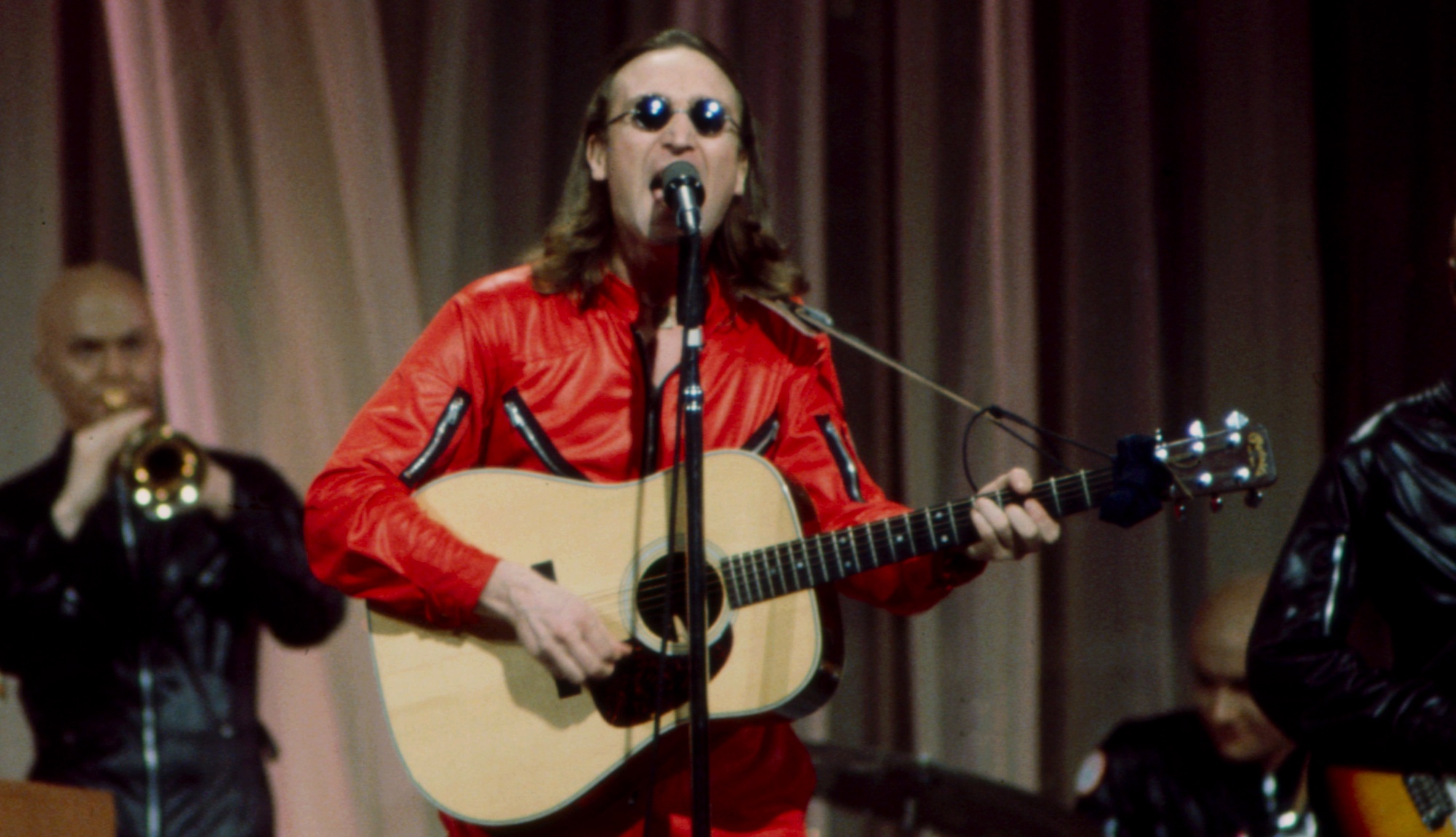Indigo De Souza: “I was bullied a lot in school and had a really hard time. Guitar ended up being like a space of safety for me”
Gen Z's alt-pop guitar hero is joined by best friend and guitarist Dexter Webb to discuss the sounds and songs behind her life-affirming new album, All of This Will End – and why a bone-dry guitar tone can be a beautiful effect in itself

All the latest guitar news, interviews, lessons, reviews, deals and more, direct to your inbox!
You are now subscribed
Your newsletter sign-up was successful
It’s not often we end up discussing existential questions in Total Guitar interviews, but raw honesty is essential to the music of Indigo De Souza. “Being vulnerable has never felt like a task for me,” she says. “Knowing that I’m gonna die one day has never felt scary. It doesn’t feel like my experience is actually special enough for me to feel very protective about it.”
That blunt acceptance of the human condition fills All of This Will End, her third album. North Carolina-born Indigo was just 21 when she self-released 2018’s I Love My Mom. The buzz from her garage pop debut grew until Saddle Creek records picked it up for re-release in 2021, followed rapidly by her sophomore effort Any Shape You Take.
All of This Will End continues that indie journey. “You’re bad/You suck/ You fucked me up,” she sings on the opening track Time Back. It’s arresting to hear such unvarnished expression of feeling. Indigo tells you what she means, undefended and uncryptically.
Although there’s a radical acceptance of her own mortality, All of This Will End is an optimistic album, embracing the opportunity to be alive. While the lyrics are at times shockingly straightforward, the arrangements are unexpectedly complex. It’s a striking contrast.
“It feels important for the arrangements to be as flailing and wild and complicated as they are at times because that’s how it feels inside my brain,” she reveals.
Joining her on guitar is Dexter Webb, her longtime best friend. “Dexter’s guitar playing is a big part of the album,” she says. “A song like Always has layers and layers of him playing guitar. It’s interesting because the last two records were totally different bands.
“Dexter played guitar on the last album as well, but he was replicating parts other people wrote. It felt really good on this album for him to speak in his own language through the songs. Dexter speaks through his guitar in a way that I’ve never seen and that I really connect to, so working with him to create arrangements that feel like a representation of our emotional landscape just happens naturally.”
All the latest guitar news, interviews, lessons, reviews, deals and more, direct to your inbox!
Whatever electric guitars you might imagine make these lo-fi soundscapes, you are almost certainly wrong. Indigo’s is a 1989 Gibson SG-90, a short-lived SG variant with 24 frets and a single-coil neck pickup. It has a graphite-reinforced neck, through-body stringing rather than a stop tailpiece and, in Indigo’s case, a lightning bolt on the body.

Dexter, meanwhile, plays his 12-string Ovation Deacon, a space-age looking electric produced from 1973 to 1982. “I think the depth to the guitar sound and the heaviness comes from me playing an electric 12-string,” he reveals. What sounds like chorus on some songs is actually the Deacon: “For the song Wasting Your Time I slightly detuned the unison strings to play the lead, to give depth and thickness to it.”
Dexter gets his distorted sounds from an Orange Rockerverb, while Indigo uses a Vox AC15 run on the verge of breakup. Most of the reverbs were captured the old fashioned way during sessions at Drop of Sun studios in Indigo’s home state.
“The place has this tall beautiful room, and we had a set of condenser mics up on this upper terrace level,” Dexter explains. “We also sent sounds into their bathroom and down the hallway of the studio to get reverbs.”
The longer we’ve been playing, the more we appreciate dry guitar and how in-your-forehead it can feel. I almost think of a bone-dry tone to be a beautiful effect in itself
Dexter Webb
Neither of the guitarists has a big pedalboard. “A lot of the guitars we recorded dry,” Dexter confesses. “I don’t want to say that we avoid a lot of effects but outside of amp reverb we’re not throwing a ton extra on top of it. We do like a lot of slapback delays, especially on guitar leads.
“When it comes to Indigo’s guitar and any kind of rhythm guitar, there’s so much going on that we don’t want to take up any extra space. The longer we’ve been playing, the more we appreciate dry guitar and how in-your-forehead it can feel. I almost think of a bone-dry tone to be a beautiful effect in itself.”

For Indigo, the songs take priority over equipment. “I don’t pay enough attention to gear. It’s the songwriting and the emotion that comes naturally,” she admits. “I started playing guitar when I was nine. I remember that the focus for me wasn’t actually as much that I wanted to play guitar; it was that I wanted to write songs. As soon as I was able to strum three chords on a guitar I was writing songs.”
“Guitar has always been really emotional for me in that way,” she continues. “It’s always been like my secret best friend. I was bullied a lot in school and just had a really hard time. I hated it so much and didn’t have a lot of friends. I felt very exiled and guitar ended up being like a space of safety for me. I would just lean over my guitar and put my ear on the wood, and I would listen to the way it hummed and I would hum with it. I wrote songs with it and it felt like I had a really intimate relationship with my guitar.”
That intimate relationship continues on All of This Will End, which was written almost entirely on one guitar. “I love playing this electric guitar live, but when I’m home I still am the same way that I was when I was a child: I still have a really special acoustic guitar that is my best friend, that I spent most of my time with,” Indigo says.
“It’s a really beautiful sounding Takamine nylon-string that was given to me by this really sweet person named Kenny at Road Dog Guitars.
“He basically finds people the special guitar that they’re looking for. He’ll stop at nothing to find them the exact thing that they need. He gave it to me because he knew that my connection with it was really special and that I wouldn’t want to spend all the money on it. I’ve been writing all my songs on that. Sometimes it ends up just sleeping in the bed with me because I fall asleep playing it.”
That Takamine doesn’t feature much on the album though; the main acoustic is a mid-’60s Gibson LG-0. It’s joined by a selection of ’60s Gibsons from Drop of Sun Studios.
The musical chemistry between Dexter and Indigo is crucial to the album, and Dexter insists he isn’t consciously taking cues from any other guitarists.
“I know I’m pulling deep from somebody somewhere, but I haven’t really had a player or anything that I want to replicate,” he says. “I really didn’t start understanding and establishing my own voice with the guitar until I stopped obsessing over guitarists and started to develop my own relationship with it.
“Indigo’s lyrics and her vocal dynamics are absolutely the biggest inspiration to what I play. We just so deeply want to protect what Indigo is saying because that is the core of what we need to communicate. I’m just trying to be as present in the moment as possible and really just reacting. I think to bring the spirit of someone else’s playing into it almost disrespects what we’re trying to create.”
- All of This Will End is out now via Saddle Creek.
Jenna writes for Total Guitar and Guitar World, and is the former classic rock columnist for Guitar Techniques. She studied with Guthrie Govan at BIMM, and has taught guitar for 15 years. She's toured in 10 countries and played on a Top 10 album (in Sweden).

